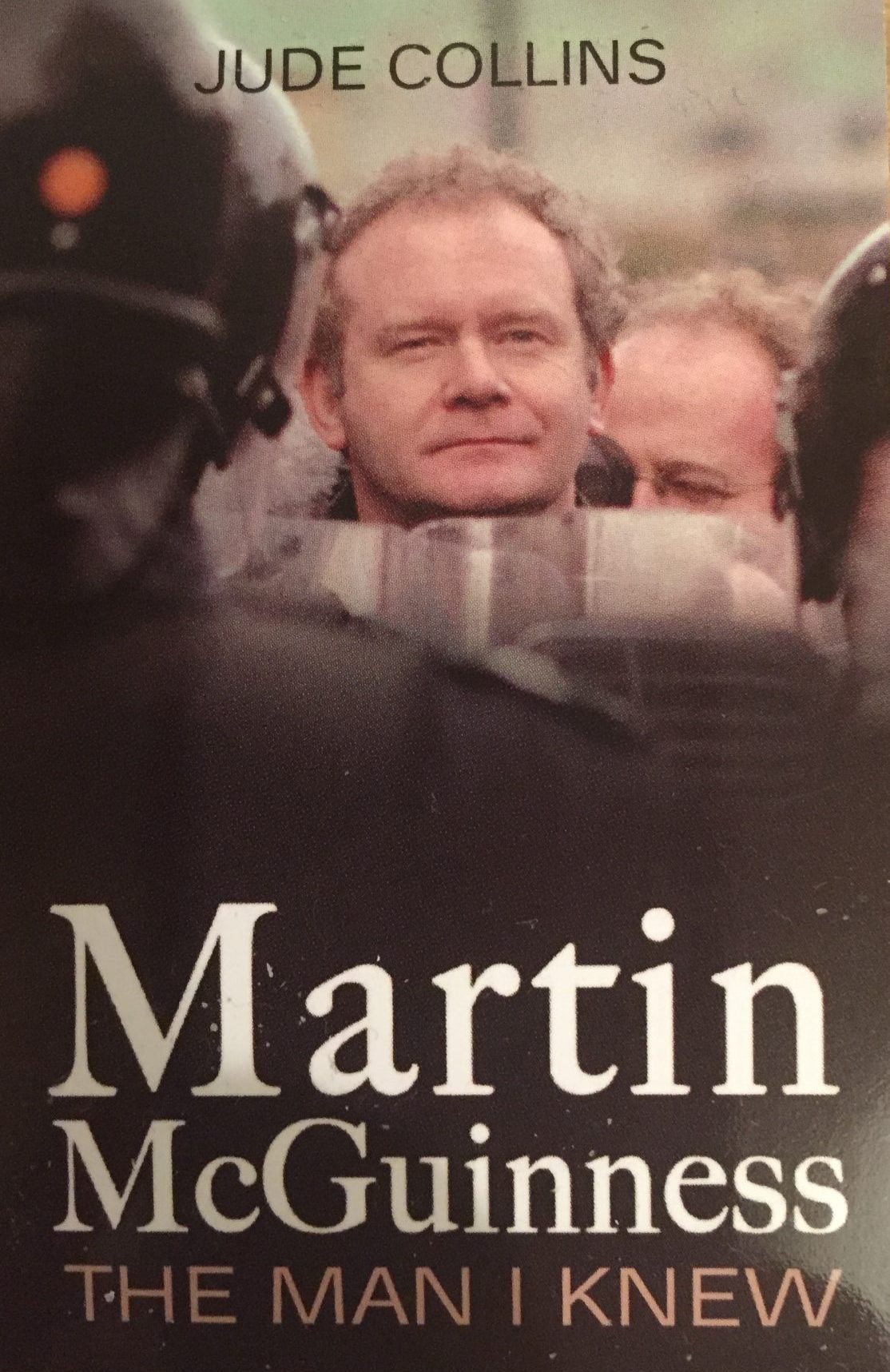Martin McGuinness’ untimely death has loomed large over the suspension of our political institutions and the collapse of trust that has defined the period since.
His elevation as a statesman in the post-Good Friday Agreement era surprised many and it is no exaggeration to say that he will be remembered in time as the pre-eminent figure in the early devolution period who more than anyone else kept the institutions afloat and worked power-sharing between the most unlikely partners of the DUP and SF for the better part of a decade.
His life included many chapters which provoked strong feelings from all in this society over the decades of conflict, peace process and into the era of DUP-Sinn Fein led devolution.
Jude Collins has written a book collating perceptions of Martin McGuinness based on a series of interviews with people from across the political and social spectrum in Ireland and abroad.
‘Martin McGuinness: The Man I Knew’ includes interviews with his closest confidant and ally throughout the past half century, Gerry Adams, as well as talks chairman, Senator George Mitchell.
There are also chapters based on interviews with Eileen Paisley, Michael McGimpsey, John McAllister and Rev David Latimer offering perspectives on the lifelong republican icon from a unionist background, and Peter Sheridan, who served in the RUC.
Inevitably, interviews stray beyond Martin McGuinness and explore the background in which his life was lived. Former Assistant Chief Constable of the RUC, Peter Sheridan, tells of visiting Nell McCafferty’s house in the Bogside and being served a bowl of soup.
“She gave me the soup and she said, ‘Do you know who made that soup?’ And I said, ‘I know you didn’t make it anyway.’ And she says, ‘Peggy’. And I says, ‘Peggy who?’ And she says, ‘Martin McGuinness’s mother’. So I said, ‘Are you trying to poison me?’ Eventually I took a police business card out of my pocket and wrote “Peggy – wonderful soup.”
Jonathan Powell, Tony Blair’s chief-of-staff, comments on the parallels sometimes drawn between McGuinness and Michael Collins:
“I think Martin will be remembered for being the man who was able to finish what Michael Collins was unable to finish. In the end, Michael Collins’ treaty led to a civil war. What Martin was doing was ending that civil war, if you like. In a way it’s a bigger tribute even than the Michael Collins tribute.”
Michael McGimpsey is non-committal in his response to McGuinness as an individual:
“Did I like him? I think you have to know somebody to like them. I didn’t dislike him. On a personal level I never got to know Martin. There was always a reserve there.”
Eamonn McCann lived close to Martin McGuinness in the Bogside for most of his life, and was impressed by the way that McGuinness, even when he strongly disagreed with him, always maintained a personal warmth. He also saw Martin McGuinness as a product of his environment:
“The most interesting and probably symbolic thing about Martin was the way his development, his growth and the changes in his perspective, which were clearly evident, followed almost exactly the trajectory of the community from which he came: march for civil rights, followed by the decision to fight back if attacked; then you fight against the state, bringing you into the republican army. At every stage Martin was in lockstep with the people in the streets of the Bogside. That was how he was perceived and how he perceived himself.”
Aodhán Mac an tSaoir, the nephew of Eddie McAteer, leader of the old Nationalist Party, worked closely with McGuinness over many years. He recalls his reaction to news of Martin’s death:
“As soon as I heard he had passed away, I got in the car and drove to Derry. I thought at first his family had gone to bed – it was 4.30 a.m. and the lights were out. As it happens they were up, but I didn’t want to knock on the door. My wife was with me and I said, ‘We’ll drive towards Buncrana.’ We drove as far as Fahan and the beach. The sun was just rising – day was breaking. We were listening to the radio and at 5am Tommie Gorman had the news of his death for RTÉ. We were in the car on the beach, with darkness starting to recede and daylight coming. They played this amazing lullaby with Sinéad O’Connor and the RTÉ orchestra – ‘Lay Your Head Down’. When it finished they said, ‘We’re going to the news.’ And Tommie Gorman said, ‘Martin McGuinness has passed away’. I don’t know if the music was coincidence. But it was very hard. Very hard.”
The interviews tell us much about Martin McGuinness but also, as Eamonn McCann suggests, the background against which he lived. And, inevitably, they tell us about the interviewees as well.
The book offers twenty-seven perspectives on an exceptional individual. What emerges is a friendly, feared and fearless man.
‘Martin McGuinness: The Man I Knew’ is published by Mercier Press and will be launched this week in:
- Derry (Wed 21st March at 6pm by Rev. David Lattimer/ Fr Michael Canny in Eason, Foyleside)
- Belfast (Thur 22nd March at 6pm by Joe Brolly in Eason, Donegall Place)
- Dublin (Fri 23rd March at 6pm by Bertie Ahern in Eason, O’Connell Street)
Discover more from Slugger O'Toole
Subscribe to get the latest posts to your email.
